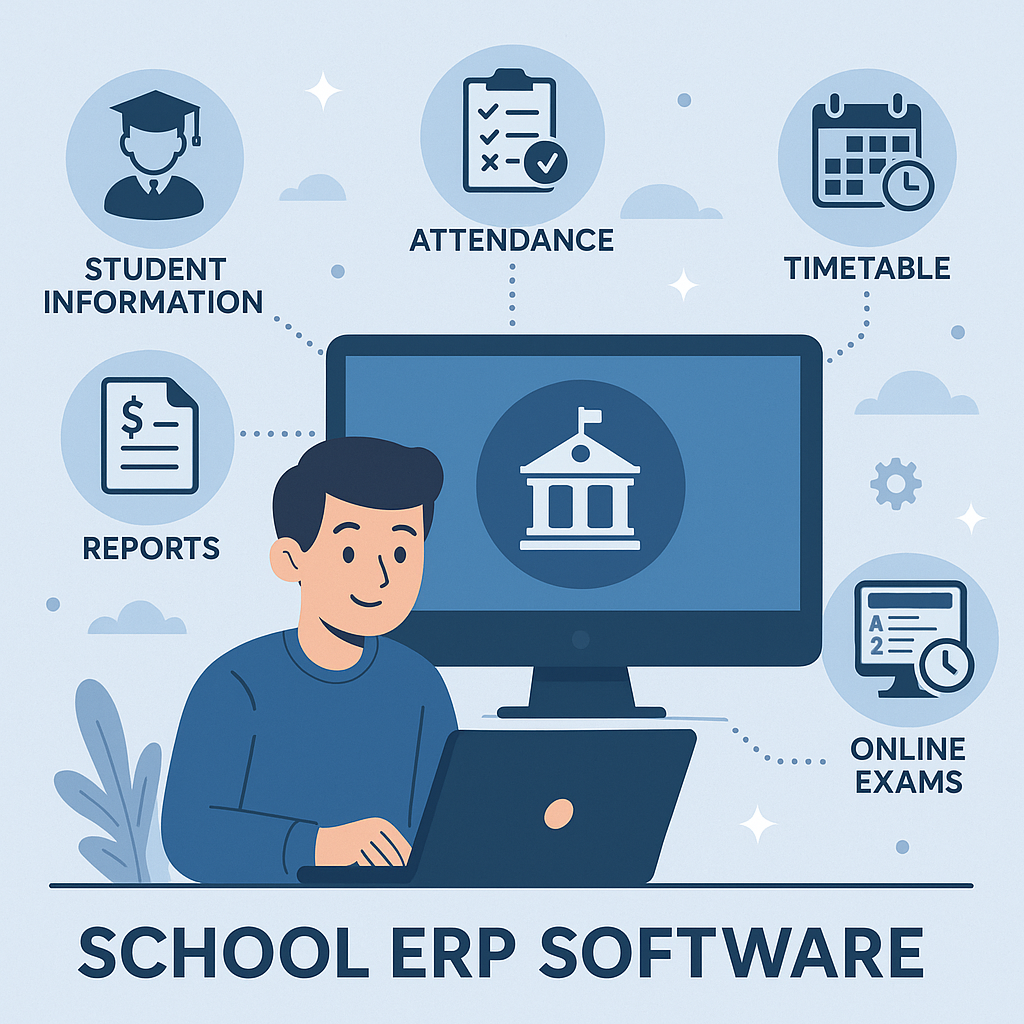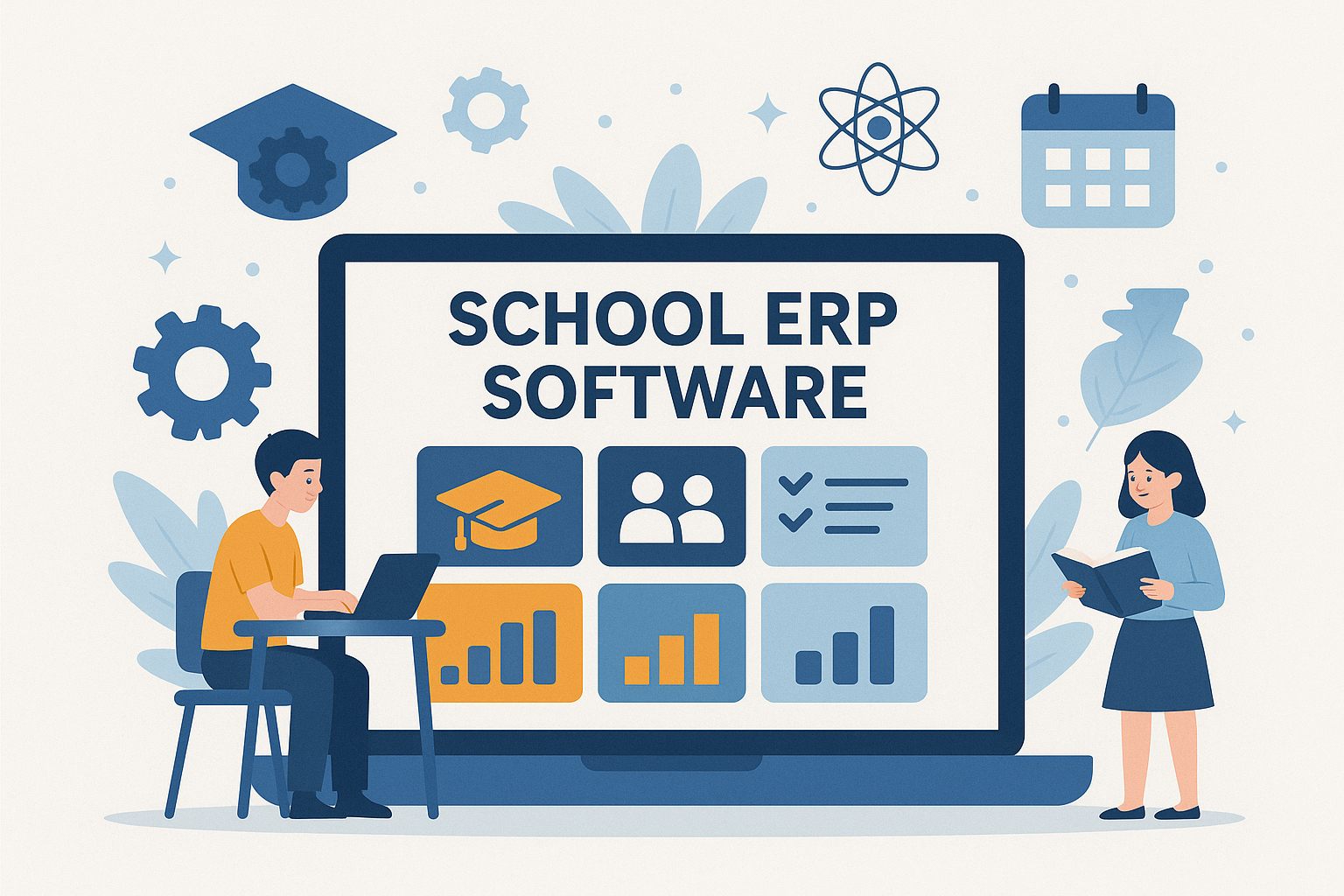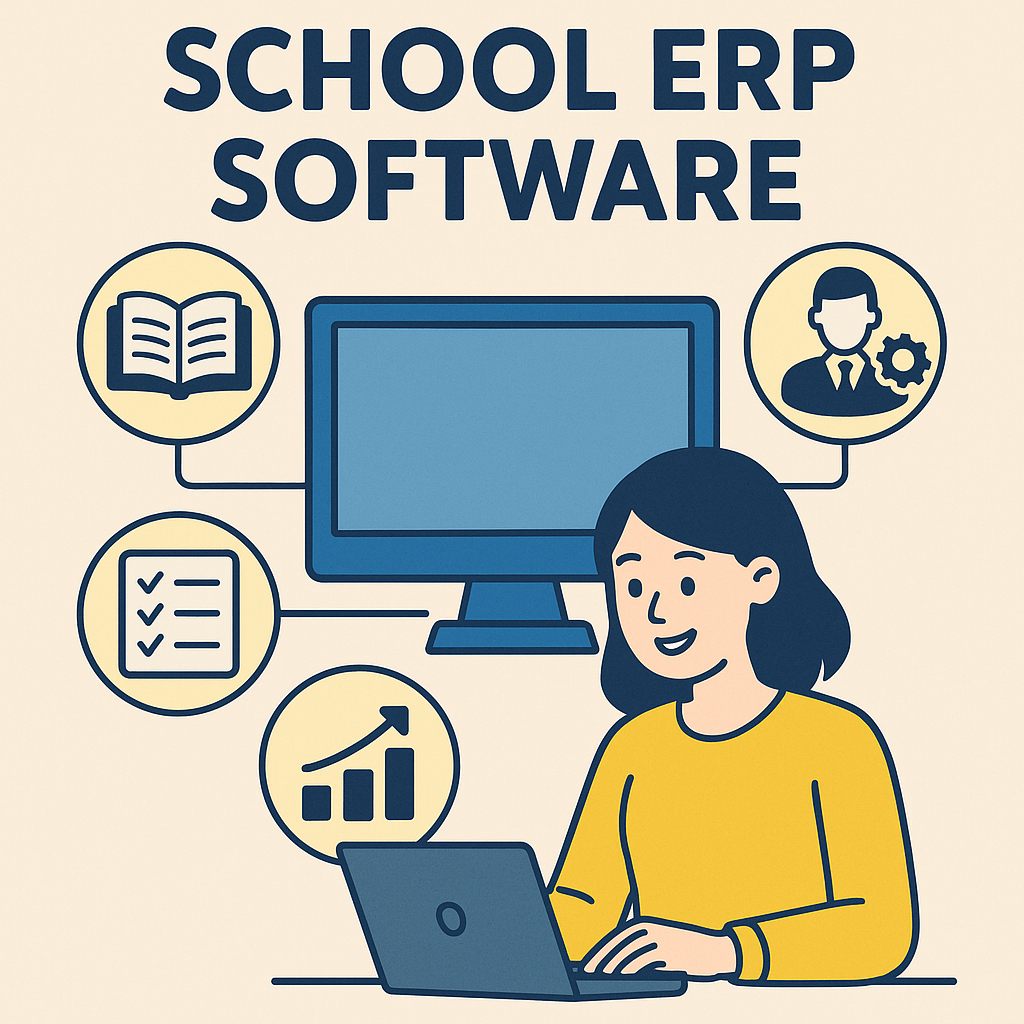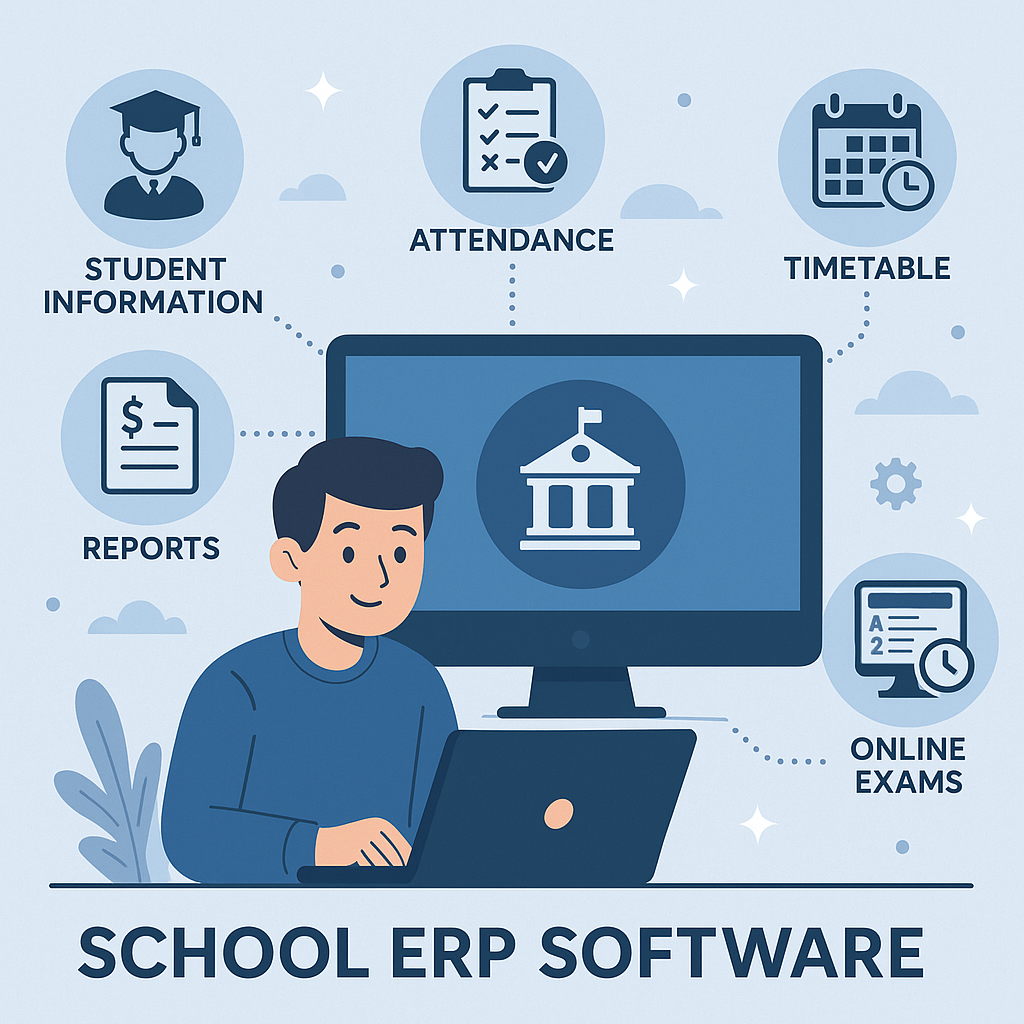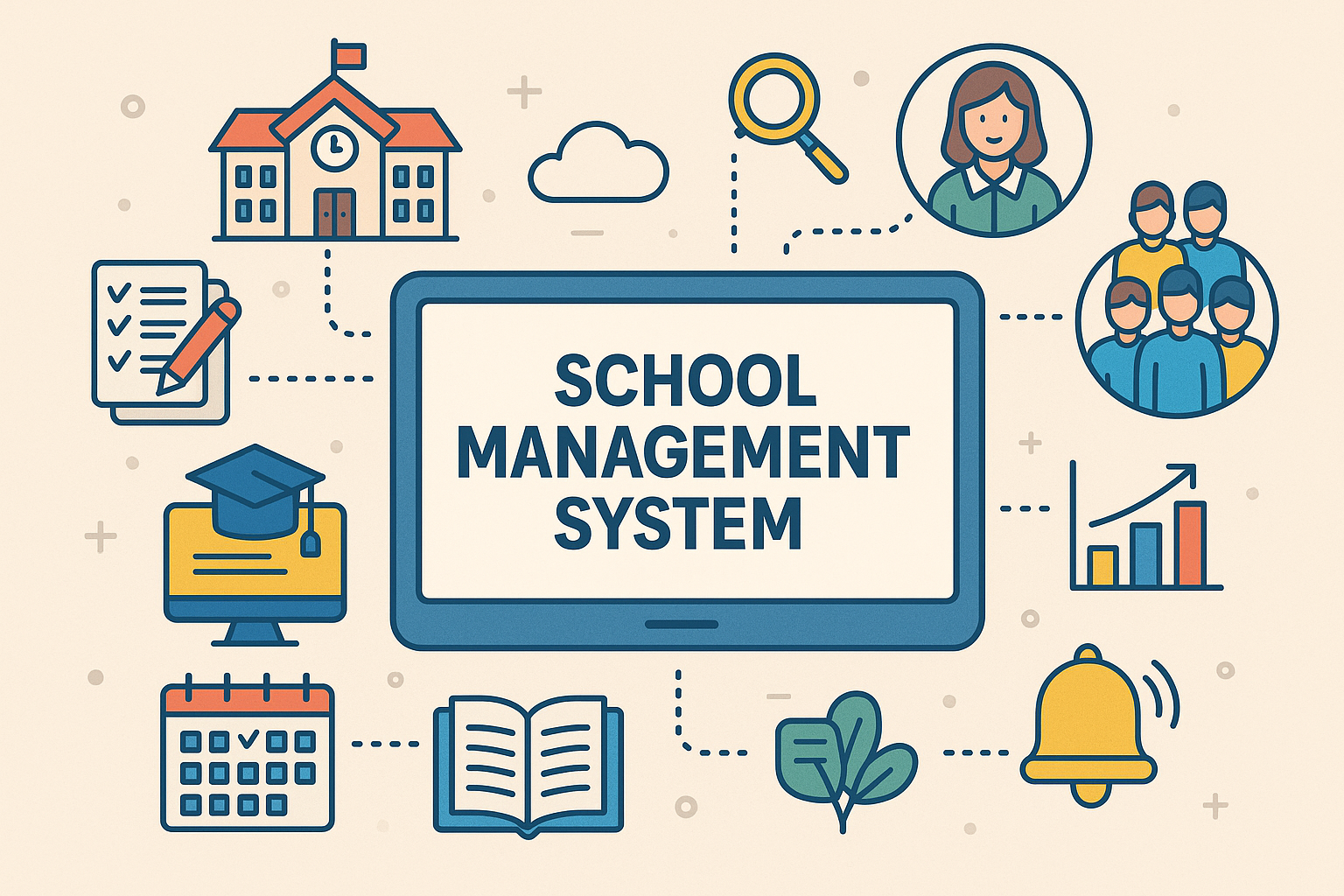Shape Tomorrow’s Schools with Today’s ERP Technology

Strong 8k brings an ultra-HD IPTV experience to your living room and your pocket.
In an age where digital transformation touches every facet of life, education is undergoing a significant shift. Schools and educational institutions are increasingly embracing modern technologies to enhance administrative efficiency, academic performance, and overall student experience. One of the most impactful innovations in this space is school ERP software, a solution designed to streamline operations and shape the future of learning environments. As institutions look ahead, it’s crucial to understand how today's ERP systems can lay the groundwork for tomorrow’s schools.
The Evolution of School Administration
Traditionally, managing a school involved mountains of paperwork, manual tracking of attendance, physical record-keeping, and numerous administrative bottlenecks. With the rise of educational ERP systems, schools now have the tools to automate and integrate processes across departments—from admissions to alumni management.
ERP, or Enterprise Resource Planning, refers to a suite of applications that helps organizations manage and integrate essential functions. In the context of education, ERP software simplifies complex workflows, enhances communication between stakeholders, and ensures real-time access to data.
Key Features That Drive Transformation
Modern school ERP platforms come packed with features designed to meet the dynamic needs of educational institutions. These include:
Automated Attendance Management: Replacing manual roll calls with biometric or RFID-based attendance systems that update in real-time.
Student Information System (SIS): Centralized data management for student records, grades, health records, and behavioral logs.
Fee and Finance Tracking: Transparent accounting tools that allow parents and administrators to monitor payments, dues, and scholarships with ease.
Learning Management Integration: Seamless connection with e-learning tools to bridge classroom teaching and digital education.
Communication Portals: Real-time updates and messaging capabilities between teachers, students, and parents to foster better engagement.
These features not only enhance efficiency but also help institutions deliver better educational outcomes by focusing more on pedagogy and less on administration.
Real-World Impact: Case Studies and Success Stories
Several institutions around the world have reported measurable benefits after implementing ERP systems. For instance, the University of Santo Tomas in the Philippines adopted an integrated ERP solution to manage its 45,000 students. The result? Faster enrollment processes, improved student satisfaction, and reduced overhead costs.
Similarly, public school systems in parts of India have used ERP to manage teacher allocation, resource planning, and student performance tracking across hundreds of schools, resulting in more equitable resource distribution and better academic oversight.
These case studies demonstrate that ERP is not just a tech trend but a strategic investment in institutional growth and student success.
Benefits Beyond the Administrative Desk
While operational efficiency is a major driver, ERP technology offers broader advantages that extend to educators, students, and parents:
Empowered Educators: Teachers gain access to analytics and reporting tools that provide insights into student performance and classroom trends, allowing for more targeted instruction.
Informed Parents: Parent portals provide visibility into academic progress, attendance, and behavior, fostering a stronger home-school connection.
Personalized Learning Journeys: With integrated data, institutions can create customized learning paths for students based on their performance and preferences.
In this way, ERP systems are not only about streamlining backend processes—they are fundamentally about enhancing the educational journey for every stakeholder.
Data Security and Compliance
With great data comes great responsibility. ERP systems for schools are designed with stringent security protocols to protect sensitive student and institutional data. Features like role-based access, data encryption, and regular backups ensure that information remains secure and compliant with national and international data protection standards, including GDPR and FERPA.
Additionally, ERP solutions often come with audit trails and logging systems, which add layers of accountability and help institutions meet regulatory requirements without added stress.
Preparing for the Future: Scalability and Innovation
One of the key strengths of today’s ERP technology is its scalability. As schools grow or adapt to changing educational landscapes, like hybrid learning or international student expansion, their ERP systems can evolve accordingly. Cloud-based ERP platforms, in particular, allow institutions to upgrade features, increase user capacity, and integrate with other tools without overhauling their entire infrastructure.
Furthermore, innovations such as AI-driven analytics, chatbots for student support, and IoT integrations are being added to ERP platforms, setting the stage for even smarter, more responsive education systems.
Choosing the Right ERP for Your Institution
Not all ERP systems are created equal. When selecting a solution, decision-makers should consider:
Customization Capabilities: Can the ERP adapt to your institution’s unique needs?
User-Friendliness: Is the platform intuitive for both tech-savvy and less-experienced users?
Vendor Support: Does the provider offer reliable implementation, training, and ongoing support?
Integration Flexibility: Can the system connect seamlessly with your existing tools and infrastructure?
Selecting the right ERP partner is not just a purchase decision—it’s a long-term collaboration that shapes the foundation of your school’s operations and innovation capacity.
Final Thoughts
As the educational sector continues to evolve, the need for intelligent, integrated systems becomes ever more critical. Investing in school ERP software today is not merely about solving current administrative challenges—it’s about preparing institutions to meet the needs of a new generation of learners. By adopting robust ERP solutions, schools can unlock efficiencies, improve educational outcomes, and shape a future where learning is smarter, faster, and more connected.
Note: IndiBlogHub features both user-submitted and editorial content. We do not verify third-party contributions. Read our Disclaimer and Privacy Policyfor details.



